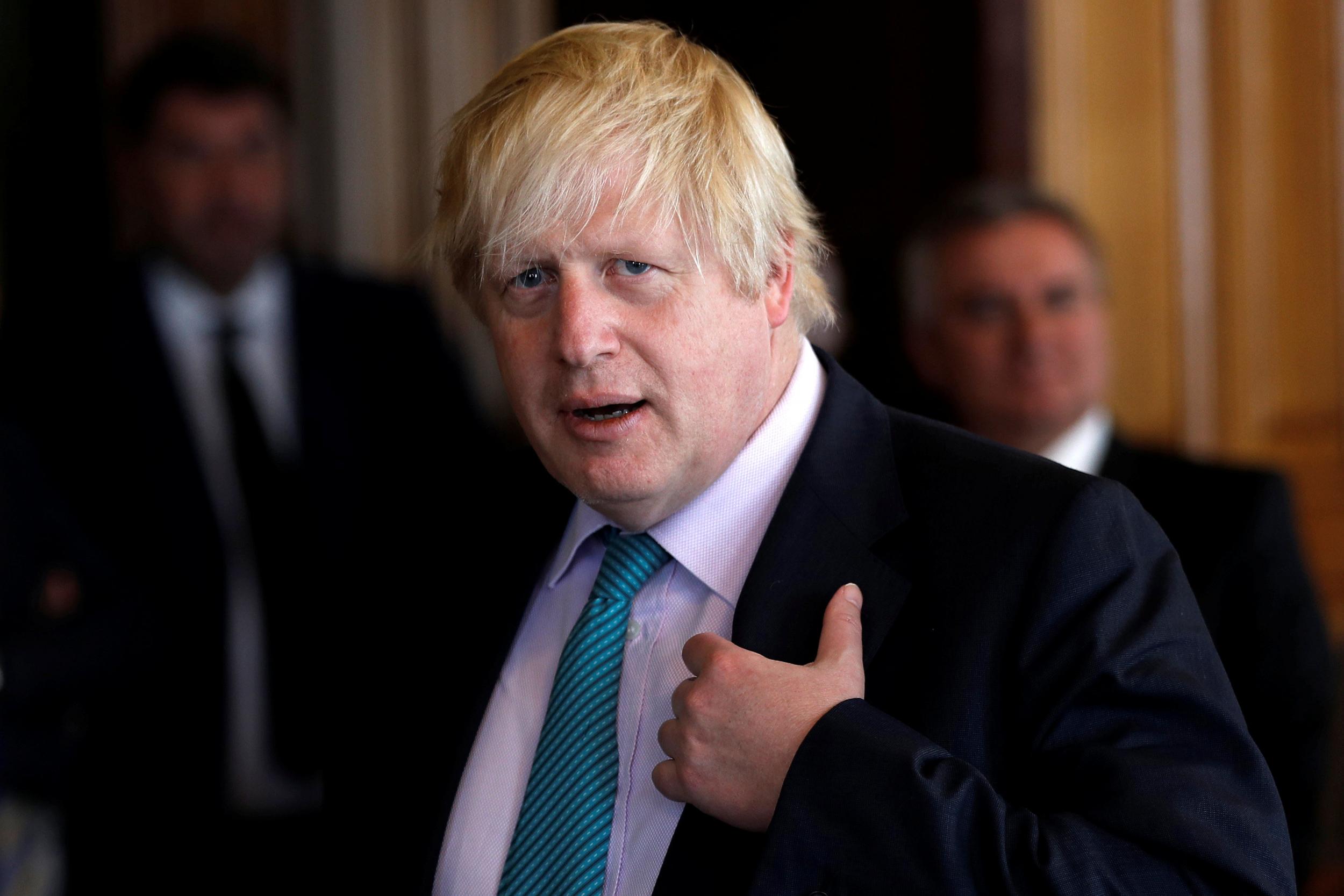Boris Johnson says blame for North Korea-US nuclear weapons crisis lies with Kim Jong-un
The Foreign Secretary said that Britain is working with its allies to try to bring the crisis to a ‘diplomatic end’

Your support helps us to tell the story
From reproductive rights to climate change to Big Tech, The Independent is on the ground when the story is developing. Whether it's investigating the financials of Elon Musk's pro-Trump PAC or producing our latest documentary, 'The A Word', which shines a light on the American women fighting for reproductive rights, we know how important it is to parse out the facts from the messaging.
At such a critical moment in US history, we need reporters on the ground. Your donation allows us to keep sending journalists to speak to both sides of the story.
The Independent is trusted by Americans across the entire political spectrum. And unlike many other quality news outlets, we choose not to lock Americans out of our reporting and analysis with paywalls. We believe quality journalism should be available to everyone, paid for by those who can afford it.
Your support makes all the difference.Boris Johnson has said the regime of Kim Jong-un is responsible for the crisis over North Korea’s nuclear programme and must now “fix it”.
In a series of posts on his Twitter feed, the Foreign Secretary said Britain was working with the United States and allies in the region to find a diplomatic solution to the stand-off between Pyongyang and Washington.
“The North Korean regime is the cause of this problem and they must fix it,” he said.
“The international community is shoulder to shoulder in ensuring North Korea stops its aggressive acts.
“We are working with the US and our partners in the region to bring this crisis to a diplomatic end.”
Mr Johnson’s intervention came as Chinese President Xi Jinping appealed to both sides for calm amid fears the worsening war of words between North Korea and the US could lead to a military conflict with catastrophic consequences for the region.
In a telephone conversation with US President Donald Trump, he urged both sides to avoid words or actions that could worsen the situation.
The Americans have been pressing China to pressure North Korea into abandoning its nuclear programme amid fears that it is close to developing a missile that could hit the US mainland.
State-run China Central Television quoted Mr Xi as telling the President that the “relevant parties must maintain restraint and avoid words and deeds that would exacerbate the tension on the Korean Peninsula”.
The call followed the latest barrage of threats from Mr Trump, declaring the US military forces were “locked and loaded” and warning Kim he “will regret it fast” if he takes any action against US territories or allies.
The crisis blew up following the disclosure that US intelligence analysts had concluded North Korean scientists had developed a nuclear warhead small enough to fit on a ballistic missile.
It prompted Mr Trump to warn that he would unleash “fire and fury” on North Korea if it did not stop its threats to the US.
Pyongyang responded by announcing plans for a series of missile test firings towards the US Pacific island territory of Guam – the home to two major US military bases.
Despite the increasingly bellicose statements, Mr Trump’s comments did not appear to be backed by significant military mobilisation on either side of the Pacific, while a discreet diplomatic back channel with the regime is reported to remain open.
As a precaution, Japan has deployed missile defence batteries under the path a North Korean missile might take. However, life on the streets of the North Korean capital, Pyongyang, is reported to remain calm.
Press Association
Join our commenting forum
Join thought-provoking conversations, follow other Independent readers and see their replies
Comments